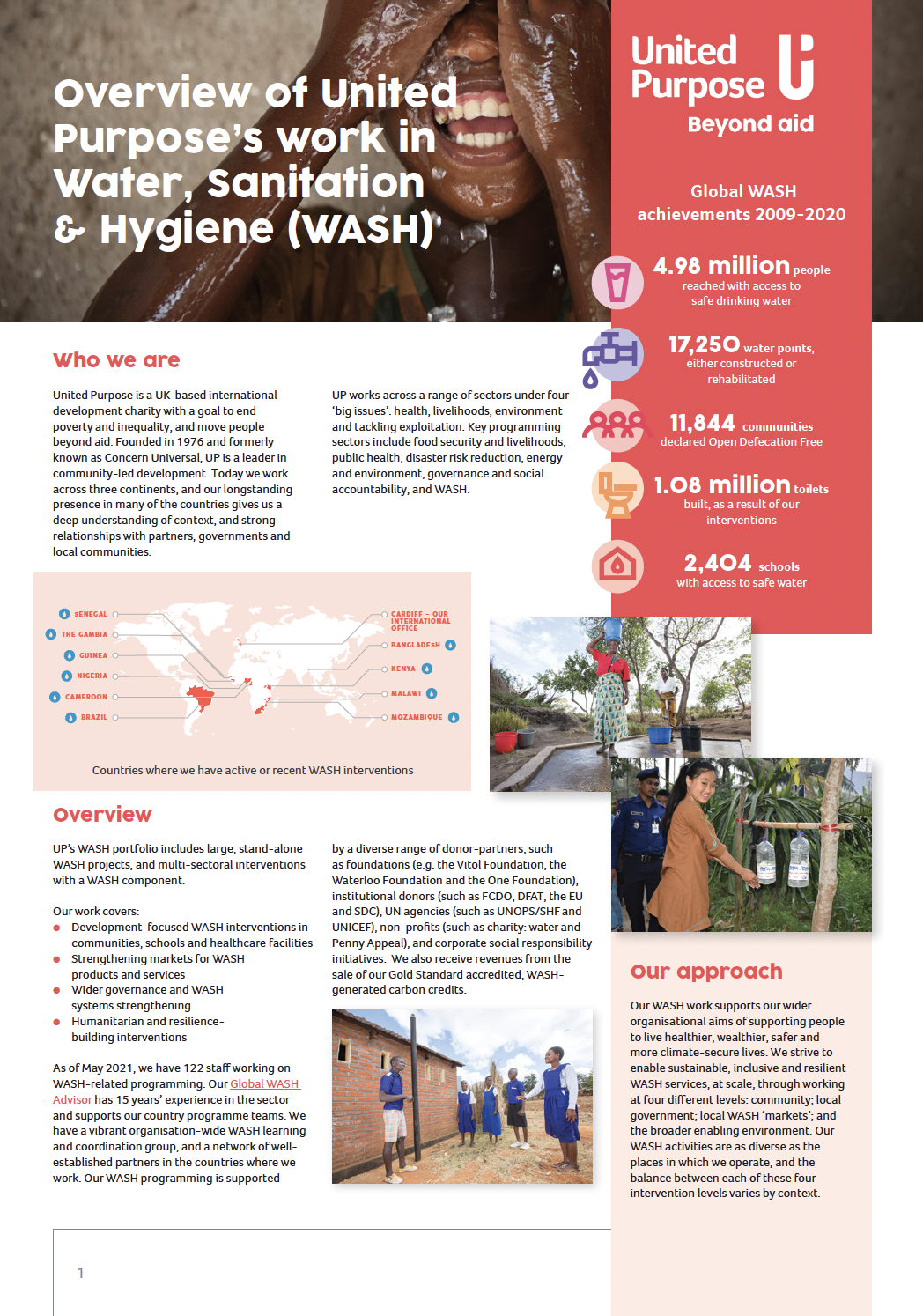Water, Sanitation and Hygiene (WASH)
Our WASH approach
Extreme weather caused by climate change is increasingly affecting people’s access to clean and safe water, sanitation and hygiene (WASH) facilities. When access to clean water and sanitation falters, people are more likely to fall ill or experience poverty.
Self Help Africa’s merger with United Purpose expanded how and where we work to improve access to WASH facilities. We are implementing WASH projects and activities with communities across Africa, as well as in Bangladesh and Brazil.
Our WASH approach centres on sustainability. Self Help Africa supports governments and authorities as they strengthen their countries’ WASH systems. We share our knowledge and expertise and equip community-based and private service providers alike. We believe this is the best way to ensure communities have the WASH services they need in the long-term. Self Help Africa is also supporting the development of markets for WASH products and services. This will make it easier for people to access the tools they need to maintain good hygiene and water practices in the future.
Our WASH work in action
We take a ‘community-led total sanitation’ approach, supporting communities to identify and solve their own sanitation problems. We use sports,music and communication technologies to share important health messages.
We seek to integrate our WASH approach into our broader work with communities, to maximise impact. For example, nutrition messages are often included in our WASH behaviour change activities. Our WASH in schools programme also usually has a nutrition component, including our school nutrition gardens in Bangladesh [Hyperlink].
Strengthening WASH systems
Working with local governments, we identify and overcome barriers to sustainable, inclusive, area-wide WASH services.
In Nigeria and Malawi, we have worked with local authorities to develop strategic, district-wide WASH plans. In Mozambique, we have technical support, quality assurance to, and sharing our knowledge and expertise with donors and the Government. In Nigeria, our long-term support to the Government’s open defecation free (ODF) strategy has benefited more than 1.7 million people and led to the first Local Government Area in the country becoming ODF.
Market-based approaches are increasingly key to our WASH work, too. The aim is to help increase access to WASH products and services, and create WASH-related jobs.
Increasing inclusion and social accountability in WASH service delivery
In many countries, there are still gaping disparities in access to adequate WASH services. To help address that, we build processes that hold governments and WASH service providers to account. We also work with communities seeking to advocate for better access to WASH services. In Brazil, for example, we’re supporting communities in low-income urban areas through rights-based approaches – sharing our knowledge and expertise so they then feel better able to advocate for access to the services they need.
Gender equality is at the heart of all our WASH work. Access to water and sanitation is essential to women and girls’ social and economic development. We’ve improved gender-friendly WASH facilities in schools. Our work on tackling taboos and practices in menstrual hygiene management, through local sanitary pad manufacture, behaviour change work and community dialogue, has benefitted thousands of women and girls, including in Malawi and Nigeria.
We are a proud member of key WASH networks such as the Rural Water Supply Network and the Sustainable Sanitation Alliance. We also serve on the steering committee of the UK WASH Network.

